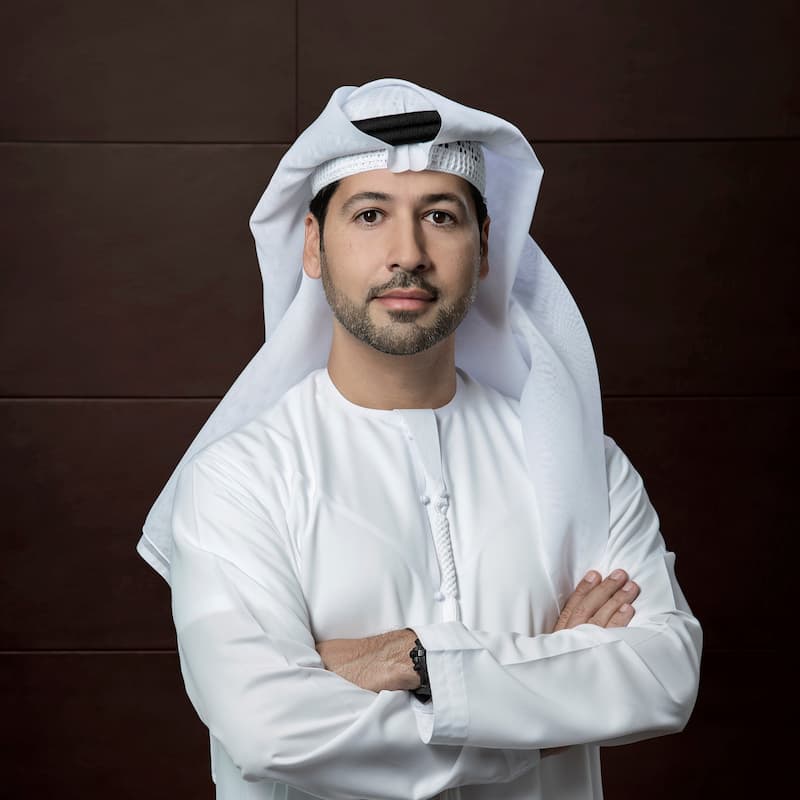Offshore
Dubai International Financial Centre's CEO Explains Big Ambitions

This news service spoke to Arif Amiri, CEO of the DIFC Authority, about the Middle East jurisdiction's aims and ambitions.
This news service cannot help but notice how the Dubai International Financial Centre (DIFC), the jurisdiction in the Gulf region, has continued to make a splash in the news. For example, in August 2022 the DIFC announced that it had opened a “global family business and private wealth centre,” highlighting how the Middle East jurisdiction is targeting family businesses as a client segment. To illustrate what's at stake, DIFC has said that an estimated AED3.67 trillion (or $1 trillion) of assets will move to the next generation in the Middle East during the next decade.
To explore the developments, WealthBriefing spoke to Arif Amiri, chief executive of the DIFC Authority.
Regarding DIFC’s 2030 Strategy objectives, as far as
wealth management is concerned, what are Dubai’s main objectives
for the jurisdiction as a regional wealth hub? Are there
particular goals that the centre has in mind?
Dubai is the city in the Middle East that has the highest
concentration of wealth and the greatest number of people in MENA
classed as ultra-high net worth individuals. Some $3 trillion of
private wealth is in the GCC and $8 trillion is in MEASA (Middle
East and South Asia). This provides the rationale for providing a
platform for companies to help people manage their wealth.
We have built the region’s largest cluster of wealth and asset
management providers – over 200 are based here and they represent
an industry size of $400 billion.
Under our 2030 Strategy, we will continue to help our wealth and
asset management providers grow faster than the market and
innovate with them to meet the needs of their clients.
More than two years ago, the UAE and Israel signed the
Abraham Accord and there has been a lot of fruitful
capital/technology/human interaction. From a private
banking/wealth management point of view, what examples can you
cite of how this co-operation is working? What challenges still
need to be overcome?
Wealthy individuals and family businesses from Israel can now
access investment opportunities through Dubai and DIFC-based
wealth and asset managers that previously weren’t available to
them.
At a fintech and innovation level, some of our startups are also
learning from those in Israel and vice versa to see how they can
better serve the needs of people with private wealth.
The DIFC’s recent move to launch a global family business
and private wealth centre is clearly designed to make Dubai a
go-to place for family offices and family-run firms. Can you talk
a bit about how Dubai intends to differentiate itself from other
jurisdictions in attracting this sort of business and
client?
DIFC has more experience in supporting family businesses than any
other financial centre in the region. Our experience allows us to
understand how we can help them thrive. This is especially
important as many family businesses need help with succession
planning, knowing how to manage disputes that may arise and
structuring their business assets – all of which DIFC is well
versed in.
We are also differentiating by providing assurance mechanisms
such as accreditation for professional service providers and
certifications for family businesses. So that family
businesses can remain focused on their businesses, we are putting
incentives in place, streamlining processes, and
providing relationship management support and concierge
services.
In our reporting on the DIFC’s work to attract family
offices, etc, it was noted that only 20 per cent of family
businesses are managed by the third generation in the Middle
East. How big an issue is family succession and planning in the
region? What can be done to improve the
situation?
Succession planning is a big area of focus for the DIFC Family
Wealth Centre for the reason you mention. The great wealth
transition is happening with families globally – and especially
in the Middle East. This is best supported by advisors and
professionals who are well versed in helping families manage
transitions – and DIFC has a vast pool of experts in this
space.
Are there innovations in wealth and business structures
(trusts, limited partnerships, etc) that the jurisdiction is
looking at to attract more business and compete more against
rival IFCs? If so, any hints about what is in the
works?
DIFC has a broad range of proven company structures. These
include family office offerings, holding companies, prescribed
company vehicles, management offices, proprietary investment
companies and trust and foundation structures. We are focused on
providing the right structures' fit for the right circumstances
which allow users to grow effectively and contribute to our
economies.